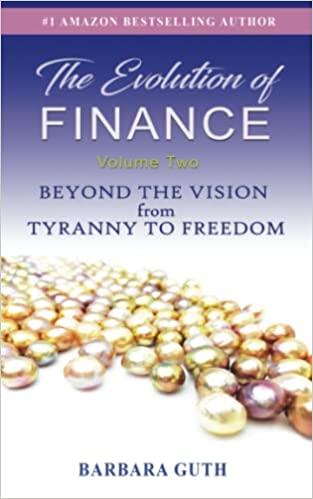Question
Golden Inc. is a firm with a stock price of $50 per share. The firm has decided to not pay the usual dividend of $1.50
Golden Inc. is a firm with a stock price of $50 per share. The firm has decided to not pay the usual dividend of $1.50 per share. Jones, a shareholder on the record of Golden, has 500 shares that she purchased some time ago for $5.00 per share. Jones needs cash and decides to create for herself the $750 dividend by selling some of her shares of Golden. Which of the following comes closest to the TOTAL AMOUNT OF TAXES that Jones must pay on the sale if the tax rate on capital gains is 20%?
| a. | $50 | |
| b. | $150 | |
| c. | $135 | |
| d. | $85 | |
| e. | Given the facts as presented, there is no tax due on the sale. |
Consider Toews, an unlevered firm with assets valued at approximately $1 billion. Toews has a current stock price of $10 per share, and also has a policy of not paying dividends. Next consider Jones, with 500 shares of Toews purchased 2 years ago at $13 per share. Jones would like to take some her investment in Toews outside the firm and wishes to create her own $750 dividend. If the capital gains rate is 20%, how much of the homemade dividend of $750 does Jones get to keep?
| a. | $500 | |
| b. | $700 | |
| c. | $750 | |
| d. | $150 | |
| e. | $600 |
In class we held a discussion about a firm that was in financial distress, paid high property taxes, had a long term union contract with its workers, and was the defendant in a high profile lawsuit. In this example the firm was considering a project that had a small chance of a significant payout, but a large chance of returning zero. What was the justification of accepting the project and funding the project with new debt capital?
| a. | Debt is a riskier form of capital compared with equity, so that the financing risk better matches the risk of the project. | |
| b. | Debt is easier to raise compared with equity, especially in this particular scenario. | |
| c. | Debt pays a fixed rate of interest, such that the projects success would not have to be split with any new shareholders. | |
| d. | Debt leads to better diversification for investors who wish to form medium sized portfolios. | |
| e. | Debt is tax deductible and firms with leverage pay less in tax compared with unlevered firms. |
Which of the following was offered in class or the text as a market imperfection that could make the dividend decision relevant?
| a. | Information signaling | |
| b. | Arbitrage | |
| c. | Interest rate parity | |
| d. | Homemade leverage | |
| e. | Buying stock on margin
|
Step by Step Solution
There are 3 Steps involved in it
Step: 1

Get Instant Access to Expert-Tailored Solutions
See step-by-step solutions with expert insights and AI powered tools for academic success
Step: 2

Step: 3

Ace Your Homework with AI
Get the answers you need in no time with our AI-driven, step-by-step assistance
Get Started


